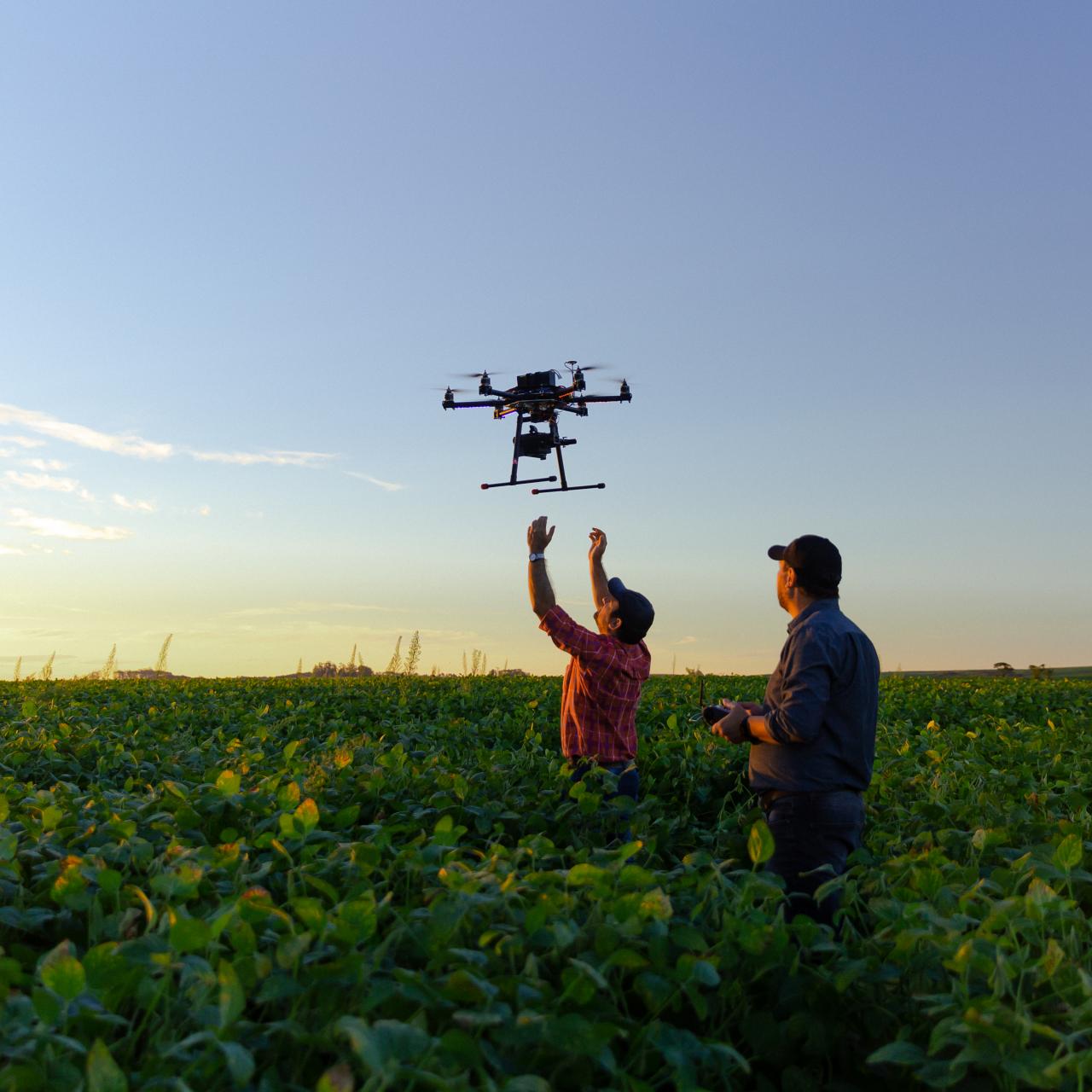This article explores the benefits, real-world applications and challenges that highlight the importance of AI and robotics in agriculture.
Avantages de l’IA et de la robotique en agriculture :
- Precision farming:
AI and robotics enable precision farming techniques, optimizing the use of resources by providing real-time data on soil conditions, weather conditions and crop health. This leads to increased yields and reduced environmental impact.
- Autonomous machines:
Autonomous vehicles and drones equipped with AI algorithms streamline various agricultural tasks, from planting and harvesting to monitoring crop health. This reduces the need for manual labor and ensures precision of operations.
- Crop monitoring and disease detection:
AI-based systems can analyze large amounts of data collected from sensors and images to monitor crop health. Early detection of diseases and pests allows targeted interventions, thereby minimizing crop losses.
- Data-Driven Decision Making:
AI algorithms analyze large data sets to provide actionable insights to farmers. From predicting market trends to optimizing irrigation programs, data-driven decision-making improves overall farm management.
- Alleviation of labor shortage:
As traditional labor becomes scarcer, AI and robotics fill the void by automating repetitive tasks.
This is especially crucial for labor-intensive tasks, such as weeding and harvesting.
Importance of AI and robotics to address agricultural challenges:
- Climate change resilience:
As climate change impacts weather patterns and increases the frequency of extreme events, AI helps farmers adapt by providing predictive models of changing conditions.
- Resource shortage:
AI and robotics contribute to resource-efficient agriculture by optimizing water use, reducing the need for chemical inputs and ensuring sustainable land use.
- Food safety:
As the world's population grows, AI-powered agricultural innovations help ensure food security by maximizing yields and minimizing waste.
- Aging agricultural population:
The average age of farmers is increasing, raising concerns about a shrinking workforce.
Robotics and AI technologies are attracting younger generations to agriculture by offering innovative and technological solutions.
- Supply Chain Optimization:
AI improves supply chain efficiency by predicting demand, optimizing logistics and reducing post-harvest losses.
This is essential to creating a resilient and responsive agricultural ecosystem.
Reliable sources:

“AI in Agriculture Market – Growth, Trends and Forecasts (2021 – 2026)” by Mordor Intelligence:
The AI in Agriculture market offers comprehensive information on global trends, growth and forecasts of AI applications in agriculture.
“The State of Robotics in Agriculture” by AgFunder:
The State of Robotics in Agriculture provides a detailed overview of the current status and future prospects of robotics in agriculture.
“AI in Agriculture: A Complete Guide” by Emerj:
Emerj's AI in Agriculture guide offers a comprehensive exploration of the applications and benefits of AI in agriculture.
Conclusion :
AI and robotics play a vital role in addressing the challenges facing the agricultural sector. From mitigating the impact of climate change to ensuring sustainable resource use, these technologies are the key to a more resilient, efficient and productive agricultural future. Adopting AI and robotics is not just an option; it is a necessity to foster a sustainable and secure global food system.

